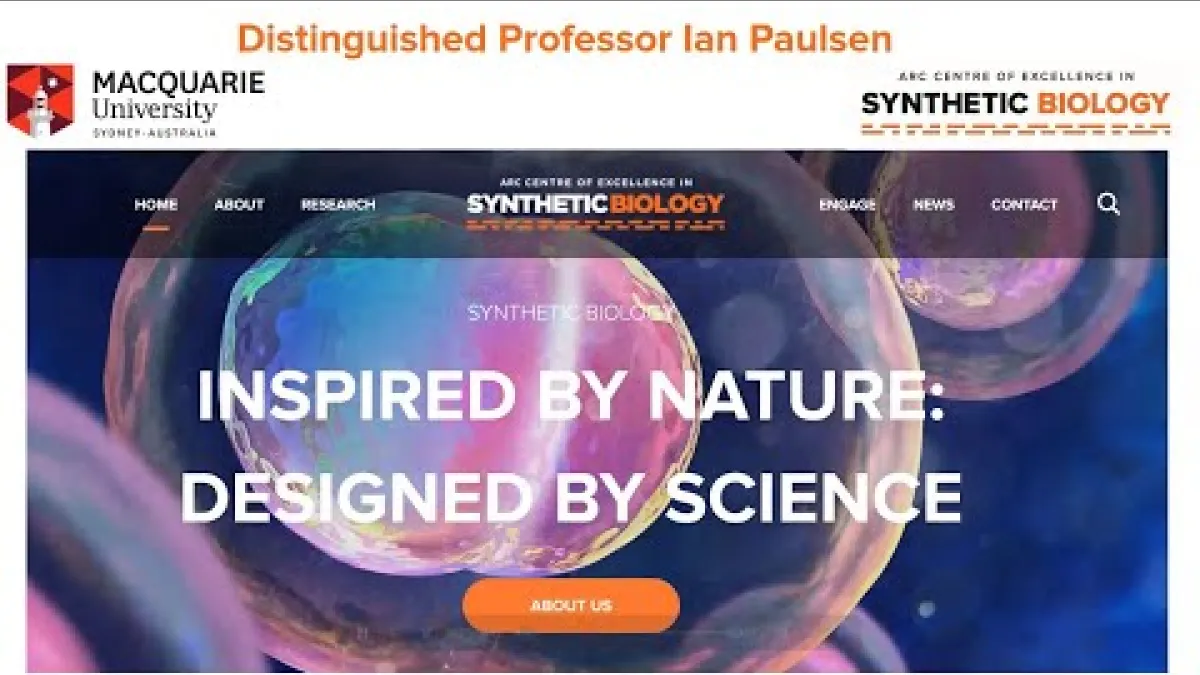BSB Seminar: The ARC Centre of Excellence in Synthetic Biology - Inspired by Nature, Designed by Science
Developing novel synthetic microbes for the sustainable production of biochemical, biofuels and bioplastics is critical for the emergence of a new global bioeconomy.
Speakers
Event series
Content navigation
Description

Abstract
Developing novel synthetic microbes for the sustainable production of biochemical, biofuels and bioplastics is critical for the emergence of a new global bioeconomy. I am the Director of the new $50 million ARC Centre of Excellence in Synthetic Biology, a consortium across nine Australian universities and twenty industry partners, that seeks to build synthetic microbes that can convert agricultural biomass or waste streams into high-value chemicals. At Macquarie University, our synthetic biology voyage started with building two synthetic chromosomes as part of the Yeast 2.0 consortium, and has expanded to building new designer chromosomes, yeast morphological engineering, building synthetic symbioses and synthetic microbial communities, and re-engineering yeast to grow on waste streams.
Biography
Distinguished Professor Ian Paulsen is internationally recognised leader in the fields of multidrug efflux pumps, membrane transporters, and microbial genomics. Paulsen has >310 publications with >94,285 citations (April 2022) and a H index of 123. He was instrumental in founding the field of microbial multidrug efflux pump research. He was one of the first researchers to clone bacterial efflux pump genes and identify their ability to pump multiple drugs out of a cell. One of the mysteries of multidrug efflux pumps is how they recognise a broad range of compounds, and Paulsen was the first person to use mutagenesis to identify specific amino acids in the pumps that were involved in recognising different classes of drugs. He was the first person to undertake genomic analyses of these systems and discovered that bacteria typically encode dozens of different drug efflux proteins. His recent work in A. baumannii led to the discovery of the first new family of drug efflux pumps found in over a decade.
Paulsen perceived tremendous opportunity in synthetic biology to combine his work on efflux pumps with international efforts to reengineer metabolic pathways for biological production of industrial biochemicals, which led him to found the Synthetic Biology Laboratory at Macquarie University. He joined the landmark Yeast 2.0 international consortium to build the world’s first synthetic yeast. The Macquarie Yeast 2.0 team have constructed two complete synthetic yeast chromosomes. He has driven the establishment of the Australian Genome Foundry at Macquarie, an automated facility for microbial strain construction.
Paulsen is an ISI Highly Cited Researcher, and Thomson Reuters have identified him as one of the world's 3000 most influential scientific minds. He is an ARC Laureate Fellow and is the Director of the $35 million ARC Centre of Excellence in Synthetic Biology. Paulsen is a Fellow of the Australian Academy of Science, and the Royal Society of New South Wales.
Location
Please note: this seminar will be held in the Slatyer Seminar Room and via Zoom, details are included below.
Slatyer Seminar Room, Rm N2011, Level 2, East Wing, RN Robertson Building (46)
Please click the link below to join the webinar:
https://anu.zoom.us/j/86268839957?pwd=U0pHZ0VEbTg0QVlHbTl6RENJd0NXUT09
Webinar ID: 862 6883 9957
Passcode: 010902
Canberra time: please check your local time & date if you are watching from elsewhere.

